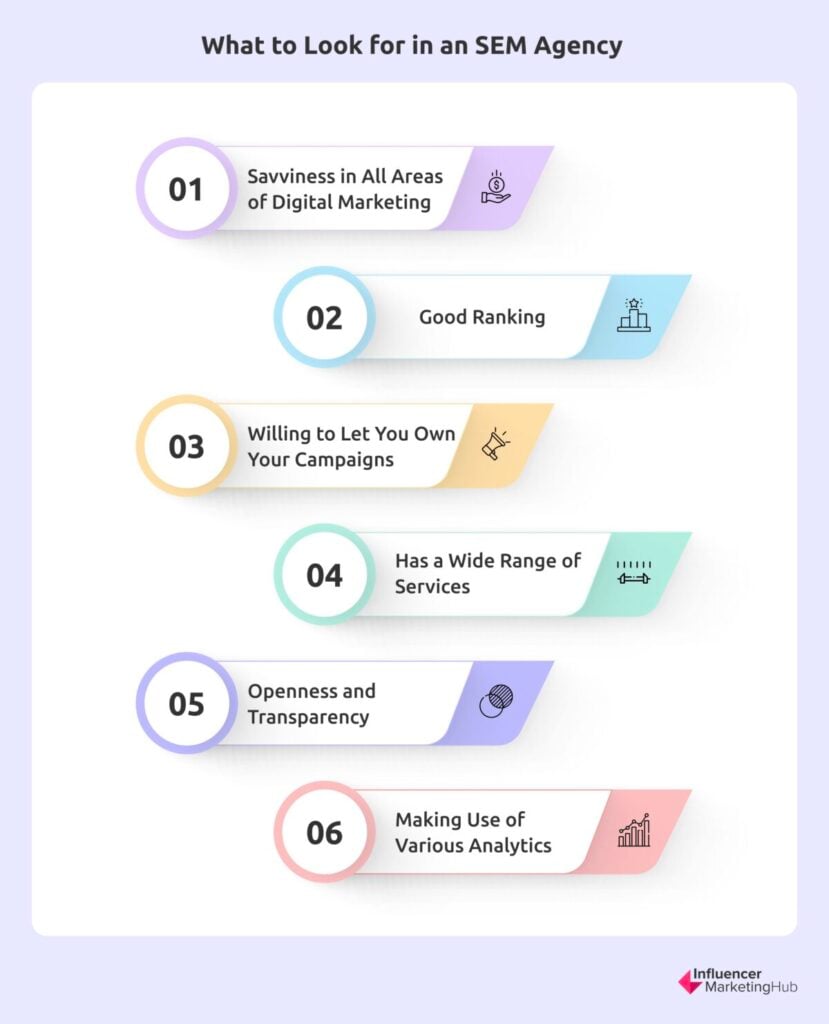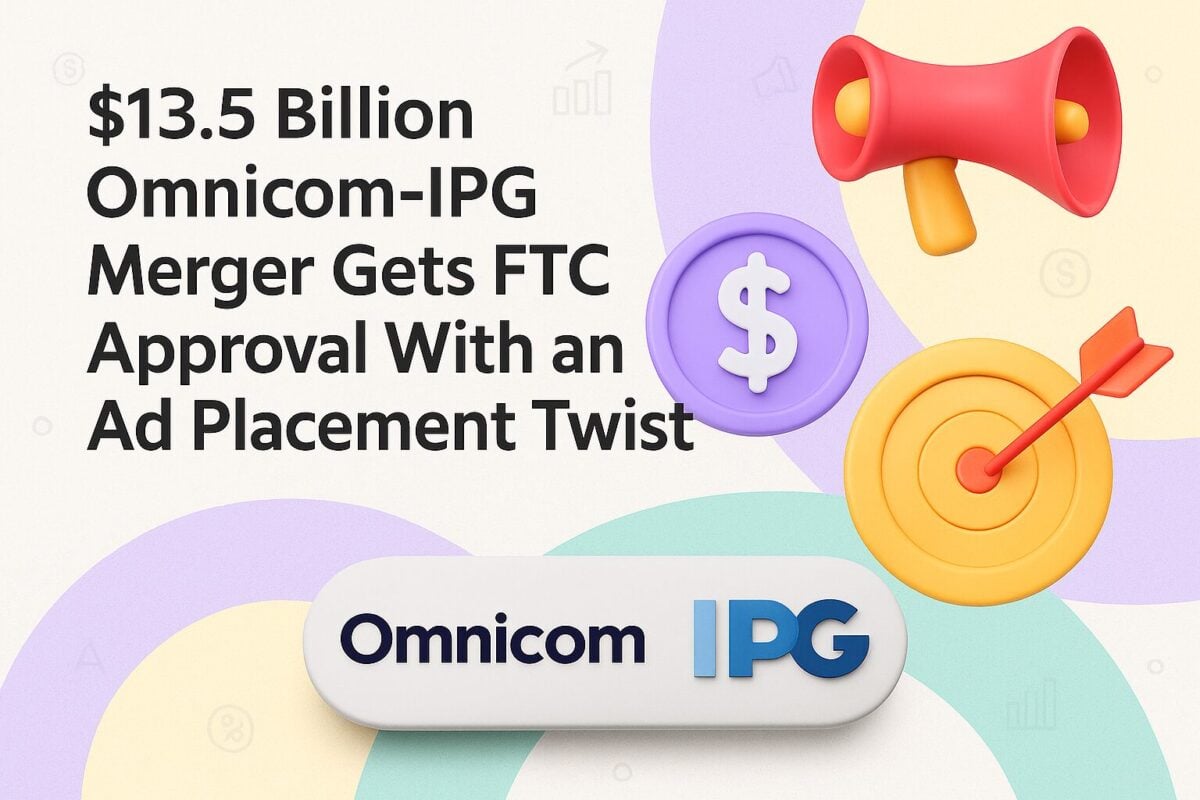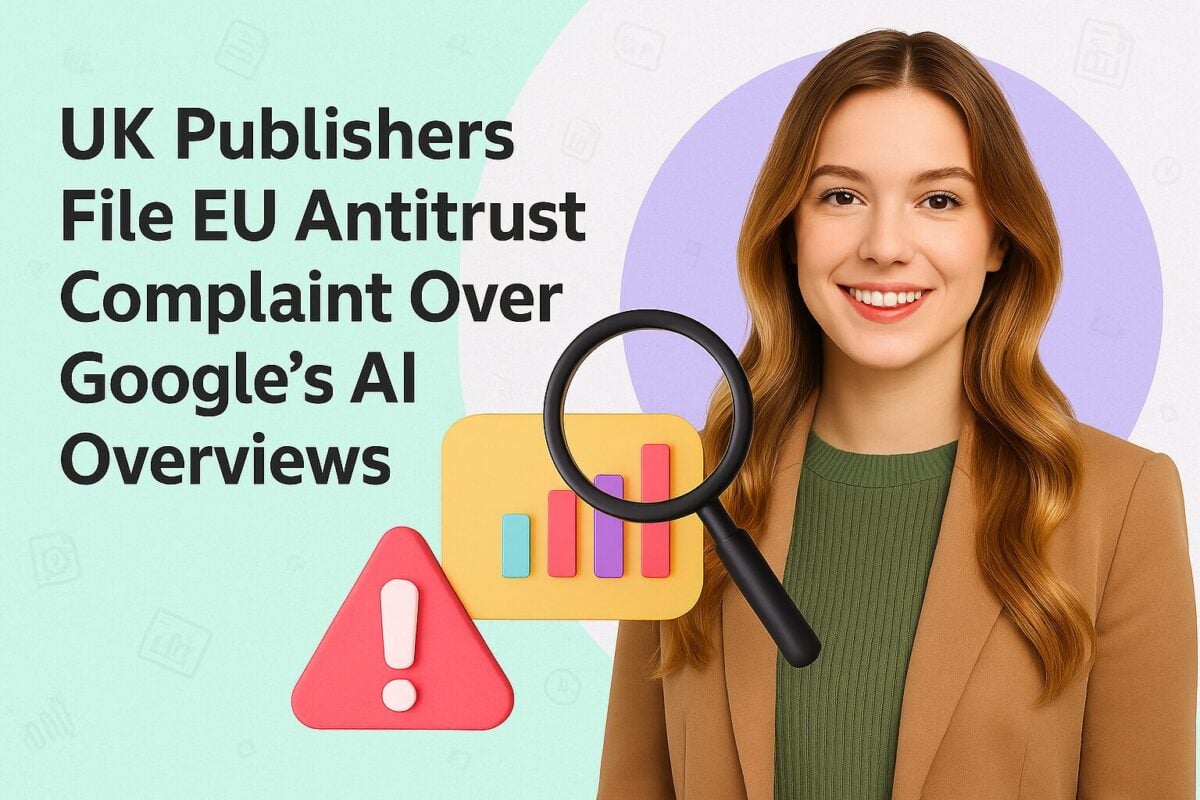Influencer Marketing Hub sets itself apart from conventional review platforms through the involvement of Digital Marketing experts such as Werner Geyser, Djanan Kasumovic, Camille Kennedy, Dave Eagle, and other notable industry figures. This expert team brings a profound understanding of the Digital Marketing landscape, assessing tools and platforms with an insider’s perspective on capabilities, experience, and industry acumen. Unlike user-generated review platforms, Influencer Marketing Hub’s evaluations are rooted in extensive firsthand experience and direct interactions with the tools and platforms in question. This ensures that the reviews are not only trustworthy but also deeply informed. High-caliber brands like Disruptive Advertising, SmartSites, and NinjaPromo undergo rigorous monthly evaluations, highlighting the platform’s commitment to identifying and showcasing top-tier solutions in Digital Marketing and beyond.
Influencer Marketing Hub has consistently been recognized by leading media outlets for our authoritative data, findings, and insights within the Digital Marketing landscape. Our platform is frequently cited as a trusted source of information, demonstrating the value and impact of our work in shaping industry standards and practices.
Influencer Marketing Hub employs an expert-driven methodology to evaluate Digital Marketing agencies, ensuring that our recommendations are both reliable and comprehensive. This approach is designed to help businesses and individuals find the best agencies to meet their specific Digital Marketing needs. Here’s how we assess the various agencies like Disruptive Advertising, SmartSites, and NinjaPromo:
The struggle is real when it comes to driving traffic to your website, thus the need for marketing methods such as search engine marketing or SEM. If you’re still new to the idea of SEM, you can compare it to farming—it takes loads of upfront effort and involves sowing seeds (content) so you can harvest the benefits (traffic).
Compared to search engine optimization (SEO), which relies on organic clicks, SEM buys traffic instead. The results can be seen immediately if you use the right strategies and with the help of a good SEM agency.
Why Hiring an SEM Agency is Important
Now it’s understood that using paid strategies can cost a lot, especially if you don’t know the ropes yet. The learning curve is steep and expensive. Doing SEM by yourself may not improve your ROI due to the high variable costs. This is where an SEM agency can help you. They can optimize your ads and methods so that you can become profitable while controlling costs.
You should look for an SEM expert or SEM agency with a good track record. They know how and which keywords to use so that ad spending can be kept at reasonable costs. Having an expert do the job for you can return your investment threefold or even tenfold. A well-executed paid ad can place you ahead of the competition, even if the search term is your competitor’s brand name.
Last but not the least, a good SEM agency can optimize your website for clicks and come up with effective campaigns that will attract your targeted buyers. Google gives a lower cost per click for relevant campaigns and websites.
Your Pick of the Top SEM Agencies
Choose from among these leading SEM agencies to increase the online visibility of your business and use paid advertisements to drive higher conversions.
1. Disruptive Advertising

Disruptive Advertising is a full-service online marketing agency that offers eCommerce, paid social, PPC management, analytics, site testing, and lifecycle marketing. As a multiple award-winning digital marketing agency, it was a force in helping businesses establish their market presence and carrying out results-driven marketing strategies.
The agency prides itself on providing the expertise that clients require at a much lower cost compared to scaling an in-house team. Their team of marketing strategists, and the technology it has helps businesses grow using proprietary marketing methodologies.
2. SmartSites

Founded in 2011, SmartSites is no stranger to search engine marketing. Included in their long list of services are PPC services, and, as a matter of fact, they’ve been rated as one of the top three agencies by GoodFirms and BestFirms. What’s more, they’re a Google Premier Partner and Microsoft Advertising Select Partner.
Their team of certified PPC specialists combines customer service with performance. With the help of proprietary tools, they can analyze data faster, help with market segmentation, and offer real-time reporting. Whether you want to keep things local or want to broaden your focus, they can help you reach your ideal customer and fast-track business growth. They can also work with you on a number of platforms, including Google and Bing, and are experienced at working with various industries.
3. NinjaPromo

Founded in 2017, NinjaPromo is a full-service digital marketing agency that works with companies in several industries, including B2B, SaaS, and gaming. Included in their impressive list of services is paid media. They offer a full suite of PPC services that will help you with account setup to detailed reporting and everything in between.
In addition to offering various SEM-related services, they also work with a number of platforms. Whether you prefer Google, Yahoo, or Bing, their team will help you to unleash the power of each of these search engines.
4. Viral Nation

Viral Nation, primarily known for its prowess in social media and influencer marketing, also extends its expertise into search engine marketing (SEM). While their core strengths lie in leveraging social commerce and influencer collaborations, they apply these principles effectively to their SEM strategies.
What’s unique about Viral Nation is their injection of social-first strategies into the SEM mix. These strategies are primed to drive growth through an approach designed to leverage the power of social commerce. As such, their goal is to transform social engagements into sales opportunities.
A prime example of this approach in action is their work for Walmart’s “Walmart Land” campaign. Walmart Land was initially an influencer campaign, utilizing celebrity, macro, and mid-tier lifestyle and gaming influencers. Viral Nation amplified the campaign further by introducing paid media elements to reach millions.
Through the combination of influencer, search, and paid channels, Viral Nation successfully amassed 66 million impressions, 235k Walmart Land visits, and 4.7 million engagements.
This methodology is underpinned by their impressive track record, including engaging more than a billion customers, increasing seven times the average ROAS, and more than 35 awards to their name. Their clientele includes names such as Meta, Ubisoft, Activision, Chegg, and many more.
5. Thrive Internet Marketing Agency

Thrive Internet Marketing Agency offers a full spectrum of data-driven web marketing services. The agency develops growth-oriented online marketing campaigns designed to have positive impact on businesses. Their range of clients came mostly from Germany, Hong Kong and the United States.
This award-winning digital marketing company started out as a one-man shop and has blossomed since then into a full-service agency. Thrive is all about relationships and results, working with businesses of all sizes—from startups to major franchises—in most niches and industries.
6. Directive Consulting

Directive Consulting is a specialized search engine marketing (SEM) agency that excels in driving revenue growth for SaaS companies through a strategic blend of paid media and SEO services. Their approach is centered on eliminating wasted ad spend and optimizing organic content to generate high-intent leads and substantial business outcomes since their inception in 2014.
Directive Consulting’s SEO and content services are tailored to meet the unique needs of B2B SaaS companies, focusing on driving revenue rather than just increasing page visits. Their customer generation approach ensures content strategies are built around the motivations, buying signals, and research needs of your ideal customer profile (ICP).
Their work for Sumo Logic is a testament to their expertise in harnessing the organic aspects of SEM. Focusing on content creation and organic search, Directive generated over 2 million impressions in less than four months. This resulted in a 38% increase in impressions, a 20% increase in new organic site users, and a 175% increase in keyword rankings.
Similarly, their paid media services are designed to capture high-intent buyers through a methodology around buyer intent and firmographic targeting. This ensures every paid media campaign is focused on generating direct, qualified pipelines rather than mere marketing qualified leads (MQLs).
A prime example of their success is the partnership with Eden Health, where Directive Consulting grew their pipeline significantly through paid means. Utilizing, automated bid strategies, they managed to increase the conversion volume by 78%, decrease the CPL by 54%, and achieve a massive 181% increase in conversion rates.
7. Social SEO

Social SEO has over 20 years of experience in creating tangible results for its clients. It provides month-to-month agreements and will only require a 30-day notice if you want to stop its services. This compels the team to prove themselves each and every month.
The agency is tried and tested when it comes to delivering the results needed, from increasing ecommerce sales to gathering leads. Social SEO works with major national and local brands, and even small businesses, in driving conversions, increasing lead flow, and elevating the bottom line.
8. WEBITMD

WEBITMD is a premier search engine marketing (SEM) agency that offers a suite of services designed to enhance your online presence and drive meaningful results. With over 15 years of experience, they provide an integrated approach to search engine marketing, ensuring your campaigns are not only effective but also efficient. Their services cover all major organic and paid platforms, making them a one-stop solution for businesses looking to maximize their return on ad spend (ROAS).
WEBITMD excels in managing paid media across multiple channels under a single engagement. This approach simplifies the process for clients, ensuring all networks are managed seamlessly and cohesively. The onboarding process is meticulously structured into three stages.
Firstly, WEBITMD takes a comprehensive look into your business model, target personas, challenges, and growth opportunities through a deep dive, helping align the agency’s strategies with your specific goals. Following this, they conduct a thorough analysis of your competitors and historical data. This step is crucial for determining the most effective path forward and ensuring your campaigns are built on a solid foundation.
Lastly, the set-up stage involves creating holistic campaigns integrating customized landing pages, CRM systems, creative assets, and more. WEBITMD does the heavy lifting to get your campaigns up and running smoothly.
Mila and Rose, for example, had built a strong physical retail and wholesale business but lacked eCommerce sales volume. WEBITMD crafted multi-channel marketing campaigns, focusing on paid and organic search, to increase the profitability and scale of their newfound store. This effort led to impressive results, including a 700% increase in online orders, a 1,000% surge in web traffic, and a 326% year-over-year growth.
9. Web FX

The experts at Web FX are responsible for thousands of successful digital marketing campaigns for clients who need to increase their leads, transactions, phone calls, and relevant website traffic. Get the same quality of service for your business. They can give you a free strategy proposal.
Web FX combines the expertise of its online marketing team with its technology platform to keep clients way ahead of the competition. The agency prides itself on driving traffic to websites, converting visitors, and measuring effectiveness using cutting-edge technology.
10. Ignite Visibility

As one of the top digital marketing agencies in the industry today, Ignite Visibility employs strategies that made ot a four-time Inc. 5000 company (2017, 2018, 2019 & 2020), with major brands under its helm. It represents high-profile clients such as Tony Robbins, DoorDash, 5 Hour Energy, and National Funding.
By being incredibly responsive and notching results, the agency has built super solid relationships with its clients. Ignite Visibility is led by no less than industry expert John Lincoln, who has been in the game since 2002 and now considered as one of the world’s top digital marketers.
Their San Diego office has 90 employees. This allows the big team to create custom solutions tailored that can suit the specialized business objectives of each client.
11. Victorious SEO

Unleashing your true search potential is Victorious SEO’s mission. The agency goes against ultra-competitive search channels by leveraging a combination of people and technology. This allows it to achieve a level of ROI for clients in just months, which would normally take years to do so.
The agency enjoys a unique positioning in the heart of Silicon Valley. Combined with its stellar performance history, Victorious SEO becomes an agency worth adding to any internal marketing program.
12. Titan Growth

Titan Growth boasts deep roots in technical SEO and paid media, having a solid team and patented technology responsible for helping clients grow their brands, profit, and revenue. The agency takes pride in its team, which is composed of industry veterans and experts and coming from diverse backgrounds, from IT to government intelligence.
Titan Growth also has its patented proprietary software, TitanBOT, on the side. The software can emulate the spiders used by Google, Bing, and other important search engines to crawl on websites. This definitely gives Titan Growth a huge advantage over the competition.
13. Joseph Studios

Joseph Studios employs marketing tactics designed to search, find, and influence buyers. Coupled with its intelligence-based digital marketing services, the agency builds and shapes the worldview of customers and helps clients achieve better outcomes.
What sets Joseph Studios apart from the others is its preference for using intelligence-based organic marketing and open-source intelligence (OSINT). With these and its ability to influence current customer behavior, Joseph Studios can help you get dramatic business results.
The agency uses a unique and targeted marketing approach that involves actionable intelligence gathering, analysis, and implementation. It focuses directly on the client in coming up with measurable and predictable growth throughout your brand’s campaign.
14. OuterBox

Operating since 2004, OuterBox is a trusted name when it comes to designing, developing, and marketing websites, all done with a drive to deliver the best results. Its team is passionate about growing their client’s bottom line using sophisticated ecommerce and digital marketing strategies.
Do you need an ecommerce solution built from scratch or are you looking to elevate your SEO, paid search, and social media marketing strategies? You can’t go wrong with OuterBox.
OuterBox’s in-house team uses lock-step collaboration in bringing fresh ideas to the table and coming up with effective marketing strategies. These are instrumental for bringing out the best of their clients’ brand and online business.
15. Streiff Marketing

If you are looking for an agency that can grow the Amazon market share of your business, then you must work with Streiff Marketing. Operated by former Amazon Central Buyers, the agency has more than 33 years of combined experience in Amazon Vendor Central and Seller Central account management.
Streiff Marketing’s team will navigate the intimidating tasks necessary for growing your business in the world’s biggest marketplace. From optimizing product listings to choosing the best advertising strategy, the agency has got you covered.
16. Influence & Co.

Influence & Co. positions itself as a results-driven content marketing agency. Their main deal is helping businesses with their content—from strategizing to distributing—in order to accomplish business goals. The agency’s team of content marketing experts uses custom technology and solid relationships with top online publications in creating their full-service solutions.
Influence & Co. recognizes that each company is different and will require different ways to realize its particular goals. They offer clients custom, goal-oriented packages that are tailored based on their content marketing assessment.
17. Delante

Delante specializes in data-driven SEO in helping businesses with KPI-focused SEO activity grow. The agency’s team of experts adjusts SEO solutions to suit the critical needs of their clients. Their focus is on technical optimizations, keyword research, earning quality backlinks, and delivering content that delivers.
Their hands-on approach and making SEO the center of their work makes Delante different from the others. They practice only direct communication with their clients, doing away with account managers that are usually tasked to coordinate between agency and client. You will be directly speaking with an SEO specialist from day one and that person will be working on your website and managing your project.
18. Incrementors Web Solutions

You only need to look at Incrementors Web Solutions numerous distinctions—including 2021 Best SEO Agency by Design Rush and Top #10 Most Reviewed SEO companies by TheManifest—to know you’re going to be working with one of the best in the business. The agency firmly believes in creating customized marketing solutions tailored to the needs of the business.
Incrementors Web Solutions’s vision is to simplify the marketing process for everyone, as this will allow companies to focus only on product development. No need to worry about where the next leads are coming from since it’s the agency who will take on that part of the process.
It aims to allow businesses to concentrate on solving their problems for their customers without having to worry about their marketing efforts.
It helps to know your goals before searching for the best SEM agency to work with. Understand your metrics and goals before you partner up with an agency and when you do, make sure to let them know what a successful campaign is for you. Working with a reputable agency means peace of mind and a better ROI.
What to Look for in an SEM Agency
In order to avoid the pricey pitfalls of search engine marketing, you need to find the right SEM agency for the job. Here’s what to look for when looking for one.
1. Savviness in All Areas of Digital Marketing
As effective as SEM is, it’s not usually enough to get the outstanding results that you seek. This is why your SEM agency should also have proficiencies in different areas of digital marketing.
Your team should know exactly what to do with Facebook, Instagram, paid and organic search, and display ads. Make sure to ask them what tools they use for their audits and how they will use the data garnered to increase your website’s traffic and sales.
Get your agency fee’s worth by working with one that has not just SEM expertise but also has the digital marketing services and talents to optimize your campaign to the highest level.
2. Good Ranking
It only makes sense to think that an agency that can rank itself on Google and relevant business sites can do a great job on making your website rank too. How can they make your website rank if they can’t rank their own brand, right? It’s a matter of finding an agency that can walk their talk.
3. Willing to Let You Own Your Campaigns
There are agencies that establish their clients’ paid search campaigns under their business accounts. It’s better if you work with an agency that will agree to set up the campaigns under your business account instead.
This will become very instrumental in case you have to end your relationship with the agency. You need to make sure that when this happens, you will own the valuable and expensive data, which you can use to build on with whomever agency you wish to work with next.
4. Has a Wide Range of Services
You need an agency that is more than a one-trick pony. Ideally, they should be able to provide SEO services as well to take care of your organic traffic. If you can get a full-service agency for a reasonable fee, then why not go for it?
As a one-stop shop, your agency should have talented copywriters and designers on their team, as well as people who will handle other marketing strategies such as email marketing and content marketing. These are all essential for boosting traffic, sales and ROI.
5. Openness and Transparency
An SEM agency should be willing to share its strategy and reports with you. If they are not amenable to such, then waste no time scouting for another one. Remember, you’re hiring them and they’re going to work for you, so you and your own team should be part of the decision-making and optimization planning.
An agency that is not open and transparent about the way they do things can be using black-hat techniques, which you shouldn’t tolerate at all costs. Your website and your brand can get affected negatively if Google catches on to these practices.
You have every right to ask for the metrics they are working with. You need to make sure where your budget is going exactly. Openness and transparency will ensure that everything will be smooth-sailing between you and the agency.
6. Making Use of Various Analytics
A competent SEM firm should gauge your present situation by running various analytics and then using the data to establish a benchmark to measure your growth. They should be able to tell you the kinds of analytics that they use, as well as the reports they generate after evaluating your keywords, competitors, and other KPIs.














